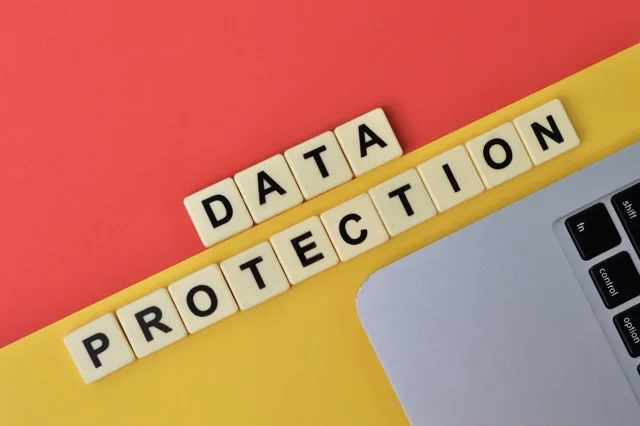
In this article, we’ll explore the critical balance between technological innovation and privacy laws, particularly concerning employee data protection in Ireland. As businesses increasingly leverage digital solutions to enhance efficiency and productivity, it is essential to navigate the complex landscape of data protection.
Those seeking legal advice for employees in Ireland must be aware of how these laws impact their privacy rights in the workplace.
The Importance of Data Protection in the Workplace
In today’s digital age, the protection of personal data is not just a legal requirement but a fundamental aspect of maintaining trust within the employment relationship. Employees must feel confident that their personal information is being handled with the utmost respect and care. This is why Ireland’s data protection legislation is designed to safeguard employee data against unauthorised access and breaches.
The General Data Protection Regulation (GDPR) and the Data Protection Acts 1988-2018 collectively provide a stringent framework that employers must adhere to when processing the personal data of their employees. This includes everything from recruitment data to performance evaluations and personal contact information.
Understanding Your Data Protection Rights
As an employee in Ireland, you are entitled to specific rights under data protection law. These include:
- The right to be informed about the collection and use of your personal data.
- The right to access personal data held about you.
- The right to rectification if your data is inaccurate or incomplete.
- The right to erasure, also known as the ‘right to be forgotten’ in certain circumstances.
- The right to restrict processing of your personal data.
- The right to data portability, allowing you to obtain and reuse your data for your own purposes across different services.
- The right to object to the processing of your personal data in specific instances.
Understanding these rights is crucial in ensuring that you can maintain control over your personal information in your professional life. For a comprehensive breakdown of your entitlements and how they are protected by law, consider exploring an informative resource on Ireland’s data protection regulations.
GDPR Compliance in the Irish Workplace
Under GDPR, employers in Ireland must comply with several key principles when it comes to processing personal data. Transparency, lawfulness, and fairness are at the core of these principles. Employers must ensure that their data processing activities are justified, and that adequate information is provided to employees regarding the handling of their data.
Employers also have an obligation to implement appropriate technical and organisational measures to secure personal data against loss, alteration, or unauthorised disclosure. This is imperative as the potential consequences of data breaches can be significant, including hefty fines and reputational damage.

As technology continues to advance, the challenges of protecting data within the workplace evolve. The integration of new systems and software can often lead to the collection and processing of increased volumes of employee data, making it all the more important to be vigilant in upholding data protection standards.
Navigating the Intersection of Technology and Privacy
In the pursuit of innovation, companies may introduce sophisticated technologies such as artificial intelligence, big data analytics, and Internet of Things (IoT) devices. While these can offer significant advantages in terms of productivity and analytics, they also raise concerns about privacy and data security.
For instance, IoT devices can monitor employee movements and interactions within the workplace, potentially leading to invasive surveillance if not managed correctly. Similarly, the use of analytics can result in profiling or decision-making that affects an employee’s career without their knowledge or consent.
It is therefore essential that employers not only comply with data protection laws but also consider the ethical implications of their technology use. By doing so, they demonstrate a commitment to respecting and protecting their employees’ privacy rights.
To stay informed about the latest developments in data protection and digital information, one must keep abreast of the current legislative discussions and proposals, such as those detailed in a recent briefing on the Data Protection and Digital Information Bill.
The balance between technological innovation and privacy is delicate, and employers must navigate it carefully. This involves not only following the letter of the law but embracing the spirit of respect for employee privacy that underpins data protection regulations.
Creating a Culture of Privacy Awareness
While laws and regulations provide a framework for data protection, cultivating a culture of privacy within an organisation is equally important. Employers should invest in privacy awareness training to ensure that every employee understands their role in protecting personal data. This includes familiarising employees with the company’s data protection policies, procedures for reporting a data breach, and the importance of maintaining data privacy in their daily tasks.
A proactive approach to privacy awareness can minimise the risk of data breaches and ensure that employees feel secure. When employees are informed and empowered, they contribute to a culture where privacy is valued and diligently protected.
Employee Data Rights and Employer Responsibilities
Employers hold a significant responsibility when it comes to employee data rights. They must provide clear information about how employee data is used, stored, and protected. This includes any monitoring practices that may impact employee privacy. Transparency is key, and employees should always have easy access to the company’s data protection officer or relevant point of contact for any concerns or questions.
Moreover, employers should be prepared to respond to data access requests from employees promptly. These requests can serve as an important check on an employer’s data processing activities and ensure that employee rights are not being overlooked or infringed upon.

Balancing tech innovation and privacy laws…
In conclusion, balancing technological innovation with privacy laws in Ireland requires a multifaceted approach. Employers must stay informed about the evolving landscape of data protection legislation and implement robust systems to ensure compliance. But beyond the legal requirements, creating a culture of privacy awareness and respect is crucial for the long-term protection of employee data.
For employees, knowing your rights and the measures in place to protect your personal information can provide peace of mind. Employers, on the other hand, can gain both legal safety and the trust of their employees by demonstrating a commitment to data protection and privacy.
For individuals seeking further information on this topic, legal resources are available that provide guidance on data protection rights and responsibilities. Whether you are an employer or an employee, staying informed about the latest developments in this area is key to ensuring that your approach to data protection is compliant, ethical, and robust.






